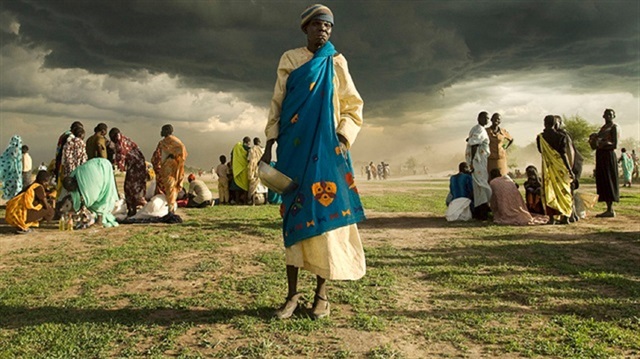
It has been over six years since South Sudan, the youngest country in the world, declared its independence from Sudan with a referendum in 2011. However, it has been marred by violence and famine; two million people were displaced from their homes due to instability and civil war, and at least 50,000 more were killed. Actions taken regarding South Sudan, which has been suffering from a four-year civil war, famine and genocide, have gone no further than reports being published by international organizations.

Salva Kir, South Sudan’s first and current president, is being held responsible for the ethnic cleansing and the ravaged villages in the country. UN inspectors note that forced migration has been applied in the country.
“There is already a steady process of ethnic cleansing underway in several areas of South Sudan using starvation, gang rape and the burning of villages,” said UNCHR Chairwoman Yasmin Sooka.
No concrete figures have been reported, though reports display that more than two million people have been forced to leave the country whereas the death toll is in tens of thousands.
“Even though more than 2 million people have fled South Sudan as refugees over the past four years of conflict, 7 million people inside the country - that is almost two-thirds of the remaining population - still need humanitarian assistance,” stated a UN report published in December.

Although the tribalism and ethnic hostilities have strongly damaged the unity of the society, hopes for peace sprung with the ceasefire signed between the government and several armed groups in December.
Robert Kwith, a young writer from South Sudan, has emphasized that the truce has to be literally abided by and he noted as follows:
Although the transition of humanitarian aid has a chance to get facilitated with the implementation of the ceasefire, education and health systems, which have come to a standstill recently, are expected to be the main problems of the country next year as well.
Seven million people live on the brink of starvation and are in need of urgent aid.
South Sudan which declared its independence in the 2011 referendum is on the brink of a genocide. Two million people have been uprooted from their homes by the army and linked armed forces.
“South Sudan has suffered immense economic turmoil since it separated from the Arab and Muslim North. Although oil is an important source of income for the country, South Sudan’s gross national product (GNP) amounts to approximately $1,500.














